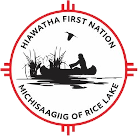November 2, 2020 marks the beginning of the fifth year of Treaties Recognition Week in Ontario
Treaties Recognition Week began in November of 2016, as a way to educate non-Indigenous Peoples on Treaties and the importance of Treaties in all our lives.
The majority of Canada exists under Treaties (Treaty Agreements) for shared use of the land between Indigenous and non-Indigenous people. Treaties are to uphold and protect Indigenous rights to land, resources, water, health care, education and much more. Treaties “define ongoing rights and obligations” for everyone who lives in Canada. Canada has not always upheld their end of the Treaty Agreements, however Indigenous Peoples continue to uphold and protect their end of these agreements.
Treaties were solemn pacts establishing the future basis of relations between First Nations Peoples, for whom Canada, known as Turtle Island is an ancient homeland, and the Settler Government of Canada and its People.
First Nations representatives signed the treaties to allot some lands and sharing of resources from these lands (to the depth of a plow) to ensure their People were looked after for many generations to come. They believed (because all the Treaty Commissioners told them so) that they would be cherished and protected by the Crown with whom they had a special relationship.
First Nations believed they were merely giving the new settlers the right to use some of their lands for farming. First Nations Peoples did not give up all title to their land, nor could they even comprehend the concept of extinguishment of all title and all rights to their lands forever.
First Nations know that they never relinquished their status as Sovereign Nations, and are absolutely certain they have never had any intention of assimilating and giving up their way of life, their culture and traditions.
Hiawatha First Nation is part of the greater Michi Saagiig Nation and the Michi Saagiig Peoples are signatories to eighteen (18) Treaties from Niagara Treaty (1764) to the Williams Treaties (1923).
Hiawatha, as a First Nation, is a Signatory to the following Treaties:
- ● 1923 Williams Treaty Clause #1;
- ● 1923 Williams Treaty Clause #2;
- ● 1818 Rice Lake Treaty #20;
- ● 1856 Islands Treaty #78;
- ● 1819/1822 Rideau Purchase Treaty #27 and 27 ¼;
- ● 1819/1822 Crawford Purchases;
- ● 1856 Islands Treaty #77
Our diplomacy was to see a treaty as a relationship and not a document, to protect our hunting and fishing rights, and to protect the land and waters. This did not happen. It was stated by one of our ancestors that “we find that we have been most grossly abused, deceived and cheated.” (George Coppaway)
We must all work together, to uphold and protect the Treaties, which in turn protects the lands and waters that we share to protect the health of Mother Earth and all that she offers for our survival, so that we can all continue to have life for the next seven generations to come.
Miigwetch,
Chief and Council
Hiawatha First Nation
